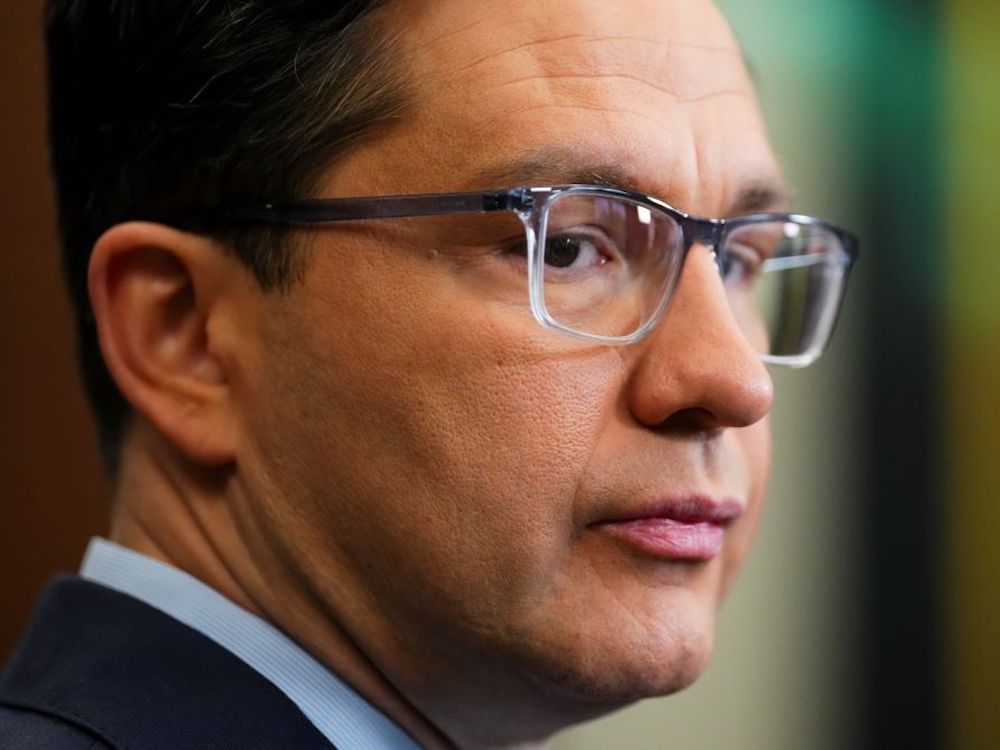It is becoming increasingly obvious that Justin Trudeau isn’t the only politician in trouble in federal politics.
According to a recent Abacus poll 81 per cent of Canadians want “change.” That is obviously bad news for any incumbent.
In Trudeau’s case, the effort by the Conservative Party of Canada to paint him as a dictatorial boob has been relentless, and routinely amplified in the dutiful, right-wing media.
Whether it was the PM’s invocation of the Emergencies Act during the trucker occupation of Ottawa, or his handling of murky allegations of Chinese interference in Canadian elections, the Opposition has done its best to turn him into a shady character, a potential traitor who has something to hide.
But is there more to the story than steadily weakening Liberal support, and an imminent defeat of the government?
There is.
Within its sample of 2,000 respondents, the same Abacus poll that showed an overwhelming majority wants a change in government also found 31 per cent of respondents didn’t like any of the politicians on offer. This group was then asked how they would vote if there were an election tomorrow.
Here are the numbers: 33 per cent Liberal; 22 per cent NDP and 19 per cent Conservative. According to pollster David Coletto, it is this group of people who don’t favour any of the leaders that will decide the next election. If Trudeau can hold on to the Liberal vote in this group and add it to the 20 per cent who want him to remain PM, there is a realistic chance he will win a fourth term.
According to Coletto, the only certain way that Trudeau falls is if one of the Opposition parties makes itself more attractive to this pivotal group that currently doesn’t like anybody.
And that is bad news for the Conservative Party of Canada. Up until now, the party’s leader has scored with the CPC base but missed the net with the broader electorate.
Pierre’s self-dug hole
The sticking point is Pierre Poilievre’s slavish adherence to the kind of Trumpian nastiness that is rotting the heart of the Republican party in the Indicted States of America. Poilievre specializes in put-downs, not lift-ups. It is usually the latter that inspire Canadians.
With former PM Stephen Harper’s public endorsement, Poilievre won the top job by dragging the CPC further to the right. And he has maintained that Freedom Caucus-style political stance as leader of the Opposition.
Gut the CBC, fire the chairman of the Bank of Canada, close safe injection sites, and keep the drill bit turning to the right while the planet is deep in a fossil-fuelled fever.
That approach may have gotten Skippy the clip of the day from question period, but it didn’t make more room in the CPC tent. Politics is a game of addition, not subtraction, and so far, Poilievre’s has got the arithmetic backwards. Great at subtraction, a flop at addition.
Former leader Erin O’Toole won the CPC leadership the same way his successor did — by playing to the party’s hard-right base. But O’Toole realized that the pitch that won him the top job in the party would not, could not, win him a general election.
So he adjusted the sales pitch, moderated his views, and took a few baby steps to the centre of the political spectrum in hopes of gaining wider appeal. It didn’t work because Canadians didn’t believe that the leopard had really changed his spots. O’Toole ended up winning fewer seats than his hapless predecessor, Andrew Scheer.
Unlike the more supple O’Toole, a move toward the centre is not possible for Poilievre. It is more likely that Vladimir Putin would rehire Yevgeny Prigozhin as his chef than Canadians would believe in a kinder and gentler Pierre Poilievre.
So if David Coletto has it right, and the only way to beat the Liberals is for the opposition to make itself more attractive to those who don’t like any of their political options, how does Poilievre do that?
Make more selfies where the facts never get in the way of the sales pitch? Public shots of him stroking small, furry animals, like his former boss did? Playing road hockey with neighbourhood children at Stornoway?
Bad news byelections and Brian Mulroney
The fact is beginning to register that Poilievre is the prisoner of his self-created persona, the man with the sharp tongue and even sharper elbows. As a hitman who can’t evolve into a more complete politician, he may not be the right leader to take down Justin Trudeau.
Journalist Chantal Hebert recently wrote that Poilievre was getting to be a “liability” to his party.
According to Conservative insider Fred DeLorey, there was a broadly held view that the CPC had underperformed in those four recent byelections.
DeLorey said that his phone “blew up” with anxious calls from caucus members, party staff and angry Conservatives, who wanted to know “what the heck happened?”
While the CPC held on to their seats in Portage-Lisgar in Manitoba, and Oxford in Ontario, they failed to breakthrough in Winnipeg South Central, or Norte-Dame-de Grace in Quebec. The Liberals held both of those seats. Although the Conservatives held Oxford they won by only seven points. In the last four federal elections they won by 25 points.
So it’s only natural that doubts now are creeping in among the party faithful. Was Pierre Poilievre on the right track with his rock’em, sock’em politics? Or was he leading the party into the electoral ditch for the fourth straight time?
Which brings me to Brian Mulroney, who holds the record for the largest electoral majority in Canadian federal politics. At the inaugural meeting of the Atlantic Economic Forum, Mulroney went out of his way to heap praise on Justin Trudeau.
The former Progressive Conservative prime minister, with back-to-back majority victories on his political resume, lauded the current PM for renegotiating the NAFTA agreement to Canada’s benefit.
He saved his most lavish praise for the way Trudeau handled the pandemic, which he said was the greatest challenge any Canadian PM had faced in 56 years.
Tellingly, Mulroney never mentioned Pierre Poilievre by name. But he did make a reference to the nasty attacks on Trudeau, many of them personal. He called those attacks “trivia,” “trash” and “rumours.”
And for good measure, he added that Trudeau would be remembered in history for his accomplishments, “not the nonsense on Parliament Hill.”
For those who might wave away Mulroney as one whose own past scandals taint his politician-endorsing credibility, that would be to ignore the past three decades. In the time since Mulroney was in office, he has crafted a new image: no longer Lyin’ Brian, he now plays the non-partisan statesman. Erin O’Toole, for one, was glad to have Mulroney campaigning for the CPC during his only federal election as leader.
Will Mulroney stump for Poilievre? It’s not an idle question.
Not when Olivia Chow, wife of former legendary NDP leader Jack Layton, has become mayor of the biggest city in Canada — a place where the CPC must do well to win government.
So, for Pierre, a question: Could it be that Toronto area voters were more interested in ideas and policies than tirades and drive-by smears?
And an old saying: No matter how far down the wrong road you go, turn back. ![]()
Read more: Federal Politics

















Tyee Commenting Guidelines
Comments that violate guidelines risk being deleted, and violations may result in a temporary or permanent user ban. Maintain the spirit of good conversation to stay in the discussion and be patient with moderators. Comments are reviewed regularly but not in real time.
Do:
Do not: